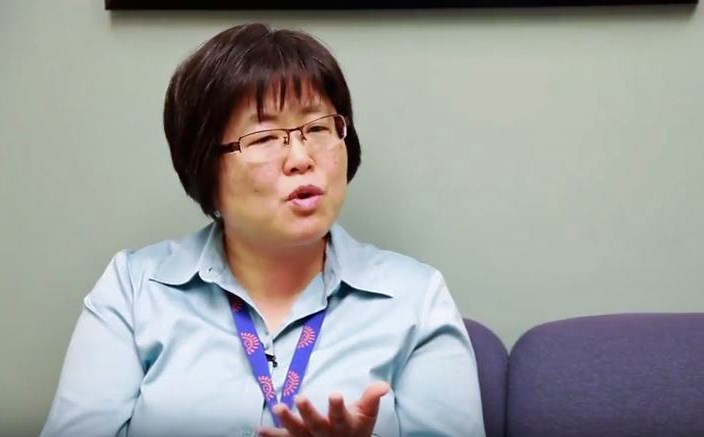Burnaby teachers and support staff packed a room at Burnaby North Secondary Friday to learn more about how to support refugee students.
B.C. Children’s Hospital child psychologist Sarina Kot, who specializes in trauma and abuse, led nearly 50 local educators in a three-hour session that examined how trauma – whether caused by abuse or by experiencing violence in a war-torn country – affects the brain.
“The event of abuse and war are different but the internal system of the brain and the nervous system would be similar in that activation – feeling unsafe,” Kot told the NOW.
Teachers already do many things that help kids recover from that feeling, like providing a safe environment and having meaningful relationships, Kot said.
Another important thing they can do is simply listen to kids talk about their experiences, which Kot said calms the trauma brain (amygdala) and activates the thinking brain (prefrontal cortex), allowing the student to make sense of experiences and file them away in an organized way.
“An event that doesn’t make sense is like a pile that once you pull anything, the whole thing will fall. That’s why kids act freaked out,” Kot said.
One tip she shared with teachers was to end each difficult conversation “in safety.”
“If a child’s talking about horrible things, no matter where they are or how they need to stop, take like 30 seconds to end it by thanking the child for sharing as well as summarizing the event, not by saying, ‘That was scary’ but ‘You are now safe.’ That’s like parking it,” Kot said.
The workshop – part of a district professional development day that featured 118 workshops – was organized in response to an influx of Syrian refugees into Burnaby since early November, which has brought 18 new families and more than 42 new students into the school district.
“It was very useful,” Natalya Khan, coordinator for the district’s settlement workers in schools (SWIS) program, said of the workshop, “and everyone who stayed behind to thank Sarina, they all reiterated that. They said it was very useful for them, it was very helpful.”
But during the session educators raised concerns about whether the district had the resources to support, not just the students, but their families, according to district English language learning consultant Ann Thorup.
Many also wanted to know what to do and what not to do when it comes to their refugee students.
“I think there’s the fear that, ‘I don’t want to damage the child even more,’” Thorup said. “Having a child break down in class is very nerve-wracking for a teacher because they don’t know how to deal with that because they haven’t been trained in how to deal with that. And we don’t want to make things worse.”
Kot, however, said one thing she hoped all participants took away from the workshop was that they’re doing a lot of important things right already.
“I hope they take away that they can make a difference, and the brain research supports what they know intuitively,” she said.
For Marlborough Elementary Grad 6/7 teacher Barb Wrinkle, that message came as a relief.
“The whole workshop was very calming and very reassuring to me that I was on the right track,” she said.



